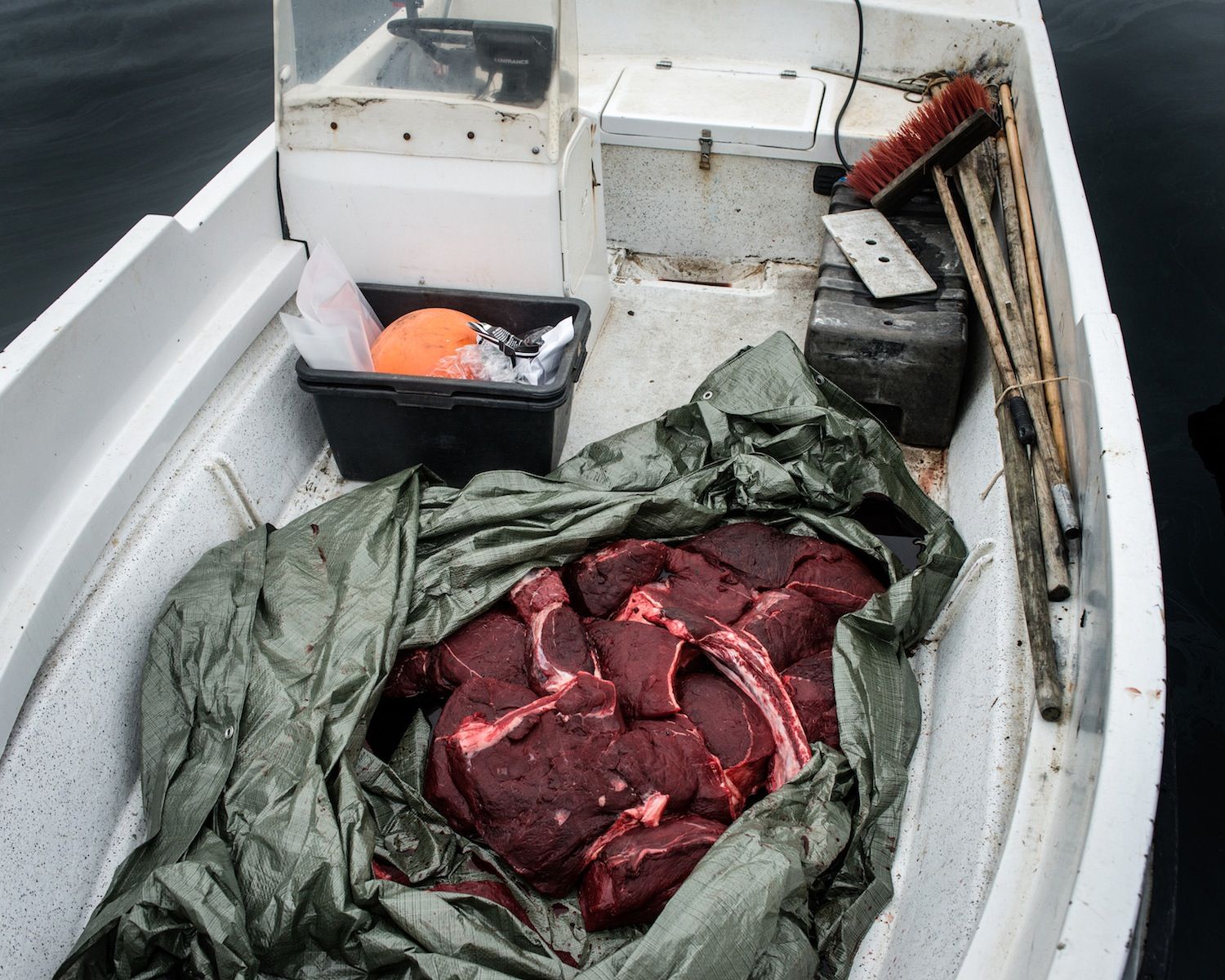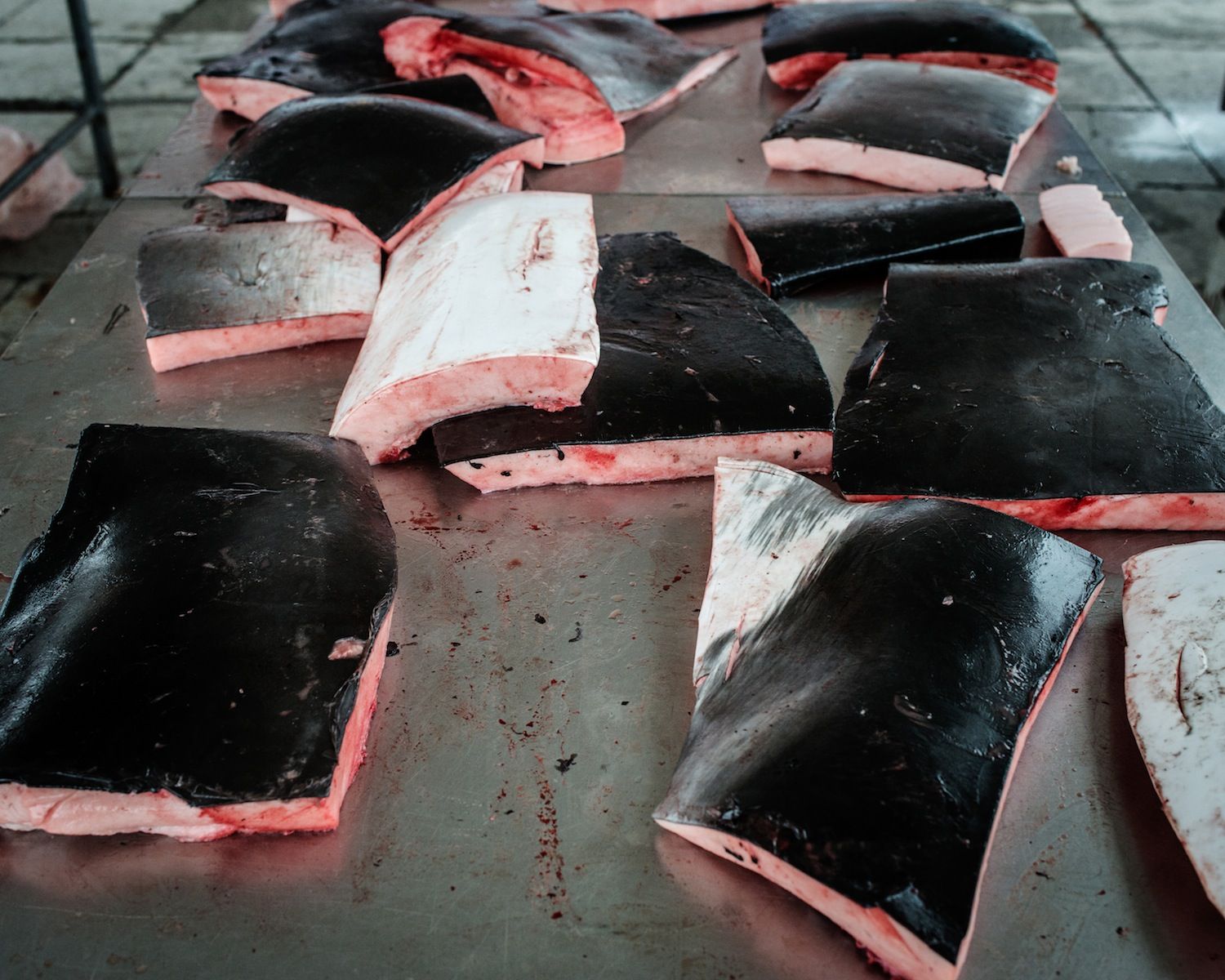As luck would have it on this July morning, a Qaqortoq fisherman who occasionally hunts whales and seals happens upon a six-meter-long mink whale, roughly one hour off the coast. He grabs his cell phone and calls his fishing buddies, and soon enough nine little boats with wheezing outboard motors are hunting down the whale through the rain and fog. The fishermen first shoot the animal with antique hunting rifles that must be at least a hundred years old. Then they finish it off with harpoons, trimmed with large, brightly colored plastic bobbers that can been seen from a great distance.
Next, they drag the whale carcass in to the closest beach, butcher it in the traditional manner with knives, and, as dictated by their customs, divide it up equally among each other. The fishermen then return to Qaqortoq and unload the huge chunks of red meat onto the fish market stalls.
Today’s meagre haul of cod and halibut leaves plenty of room on the stalls, and despite the pouring rain, the villagers cheerfully stand in line to buy the meat. Whale is one of their favorite foods that they enjoy raw, marinated, grilled, or in a stew. The blubber will be stored in jars and used this winter as a marinade to soften up the dried fish before it is eaten.
Everyone in Qaqortoq wants to reap the benefits of today’s windfall because the town has the right to only two whale kills per year; the quotas are set by the International Whaling Commission and divvied up among the towns by the government of Greenland. Within a few hours, all the meat has been sold.
Today, each of the fishermen earned 2,700 DKK (around 360 EUR). One of them, 25-year-old Andreas, considers this a good pay day. The son and grandson of fishermen, he can’t imagine any other life for himself or for his family and believes that the current scarcity of fish is only a temporary problem. The idea of working in an office or down a mine has never crossed his mind, and he just laughs when it comes up in conversation.
“I like my freedom, and my wife is just like me. Even with two children, we’re not worried about living from-hand-to-mouth.”
At worst, he would relocate to an area where the fish are plentiful, but would never consider changing his line of work.
If the rain lets up a bit this afternoon, Andreas will go seal hunting. There are a lot of seals in the area. Just one bullet to the head to avoid damaging the pelt; the tanner will pay more if the hide is intact.
Before heading for home, the fishermen swing by the town hall to register their whale, but the official in charge of providing the declaration form is away on vacation. Right away, some of them, grinning mischievously, wonder aloud if their catch really needs to be recorded. But they’re just joking around and immediately reassure everyone that they’ll return once the official is back at work. It’s a promise, they add, to more laughter.
Translated from French by Anne Thurow.



